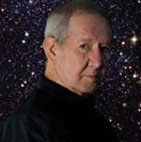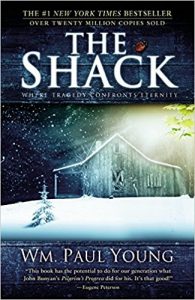PUBLISHED DECEMBER 2017
by
Ron W. Mumford, Author/Publisher --

Ron W. Mumford
An independent author traces his 20-year path through the industry, noting lessons along the way.
During the 1990s, I wrote my first novel: 800 pages double spaced, 200,000 words. I was so proud of myself. The work was sure to win the Pulitzer Prize! Sound familiar?
After my first edit by a professional editor, the work was cut in half with a notation from the editor, “Ron, you have written two books in one, and you ramble!” After the edit, the book was 100,000 words. Thus began my entry into the publishing world.
Note to self: Be thick skinned, listen to your editor, and seek wise counsel.
Having taken a company public on NASDAQ and become a licensed financial consultant with two of the largest brokerage firms in the US, I considered myself a savvy businessman—until I got into the book writing business. What a new and different industry full of well-wishers, scammers, and instant-success gurus, all looking to take your money while promising the bestseller list and delivering nothing. I queried literary agents for two years, finally found a couple, and, again, got nothing. I finally decided I would become a literary agent and go to New York and Hollywood to learn firsthand how this crazy industry worked.
Be Thick Skinned

I picked up several writer clients and headed to New York City with client manuscripts in hand. All the Big Five publishing companies rolled out the red carpet to a new literary agent from Texas. I spent half a day at Simon & Schuster and even met Stephen King’s editor. I asked each editor, “What are you looking for?” They all replied: “Great writing.” I asked, “Define ‘great writing.’” Again, each editor replied similarly, “We’ll know it when we see it.”
What a copout! What they should have said in complete honesty was, “We are looking for well-known authors and celebrities with a huge following so we can sell hundreds of thousands of books. Your chances of being published by us is about 100,000 to one.”
My last stop in Lower Manhattan was at Warner Books, where I was granted an appointment with a vice president/editor. When I entered his office and gave him my card, he snapped, “What gives you the audacity to think you can be a literary agent?” This guy did not know Texas audacity. I took a deep breath, leaned into his desk, and replied, “The same audacity that told me I could swim with the sharks on Wall Street! Do you want to talk books or what?” Needless to say, Warner and my literary agency didn’t do any business. Those condescending words still ring in my ears and keep me going. I learned a lot on that trip.
Note to self: Don’t waste time on the Big Five publishing companies.
Continuing to work hard for my clients, sending out 100 client manuscripts a month to small and mid-sized publishers, I managed to get a total of 12 books published. Harvest House, the second largest publisher in the Christian Book Association (CBA), signed a contract for a seven-book deal with my client, Deborah White Smith. Deborah was destined for greatness and later signed a five-book deal with HarperCollins. After my money and my passion hit new levels of low, I passed her on to a great literary agent, Chip MacGregor, and got out of the business. There are good lit agents out there.
Seek Wise Counsel and Editors
During my journey to less-than greatness, I met two ladies who would always tell it like it is—no frills, in-your-face truth and advice. Both had been in the industry for 30-plus years. Myra Barnes, Ph.D., from Baytown, Texas, was one of the best editors/friends I have ever had. She told me three things: 1) Don’t give up writing. If you do, you lose; 2) Great editors make great authors; and 3) If you make it to the bestseller list, send the elevator down and help another writer make it to the top. It’s the best advice I ever got.
The other in-your-face friend was Rita Mills, new hybrid publisher at Third Coast Books in Houston, who had been the managing editor at Arte Publico Press at the University of Houston, in the 1990s. Later, she left the academic community and became a book shepherd, helping writers get their books packaged. She was never at a loss for quick, sometimes not-what-you-want-to-hear guidance: 1) Don’t waste your time chasing agents. You can query indie publishers yourself, or you can
self-publish; 2) Good cover designers and editors cost money; and 3) Never submit unedited work to anyone.
Note to self: It does cost money, and a lot of it, to publish a book the right way. Take a deep breath, and write another book. Figure out a way to sell them.
Figure Out Mass Marketing
I sent emails to every IT/social media guru that I personally knew, asking them, “How do you mass market books?” I got no replies. Then a friend told me about
Bookbub, a book marketing site where an author can pay to have their e-books marketed in a daily newsletter, by genre, to millions of reader subscribers. Their premise was that readers want free or very cheap books. Bookbub has made a killing.
My friend spent $630 with them, had his e-book, priced at 99 cents, posted for one day and had over 4,000 downloads. Success! The problem was that he was with a publisher that gave him only a 10 percent royalty. He did start a buzz, but at what cost?

The Shack, by William Paul Young
Here are three examples of word-of-mouth advertising. First, E.L. James’
50 Shades of Gray. This New Jersey housewife got early reviews like this: “Smut. Don’t waste your money. Bad writing.” She laughed all the way to the bank with nine figures and a movie.
Second, William Paul Young’s
The Shack. In the foreword of his book, he stated that he had only an $80 marketing budget. No budget at all. Two years later, the word-of-mouth buzz caught on and he sold 18 million books, 10 million of which were sold overseas.
Then there is Emma Gingrich, who wrote a book
Runaway Amish Girl, published by Amanda Thrasher, CEO of Progressive Rising Phoenix Press. For some unknown reason, Australian readers loved her book and sent TV station reporters to Dallas to interview her.
Note to self: Books have to be marketed worldwide. You never know which readers will make it a success.
The key for an author to sell lots of books is still mass marketing. Mass marketing is not having 5,000 friends on Facebook or a million likes on your author page. Mass marketing is getting your book in front of millions of readers all over the world.
Authors want to write. Most have no clue how to market and have spent too much money and time on wannabe book marketers like one guy I talked to that guaranteed a bestseller. I asked him how he does his marketing and how much he charges. Answer: “For 30 days, I send out tweets on Twitter. I charge $3,000.” I passed on that offer, even for a “guaranteed” bestseller.
The basic premise remains: no mass marketing, no book sales. Thank goodness for Amazon Create Space and Kindle e-book publishing. They are the 600-pound canary of the book publishing industry. Again, the only problem is that there are millions of books on Amazon. How do I get readers to even find my books, much less buy them?
What if a group of passionate, knowledgeable, honest people could do a quality, discerning job of publishing indie authors of most all genres and mass market their books all over the world?
I found a website calling for submissions,
3rdCoastBooks.com. Then I saw the key: their global marketing site,
ReadersCloud9.com will market indie authors’ books to many countries and many readers. Simple logic: publish and market for a decent price and let authors write books. The publisher of 3rd Coast and Readers Cloud9 is that longtime mentor I mentioned, Rita Mills.
Note to self: After such a long, bumpy journey, there is hope! Bestseller list, here I come! ⦁
Ron W. Mumford is the author of the non-fiction book, Finding Your Soul Mate, God’s Way
; an action thriller novel, Gray Justice;
and a fantasy trilogy of Wayne’s Angel, Betwixt,
and Z-Gen
, soon to be published by 3rd Coast Books.
Learn more about this topic:
Authors